Clifford Garstang's Blog, page 64
April 27, 2014
2014 Reading: Orphan Train by Christina Baker Kline
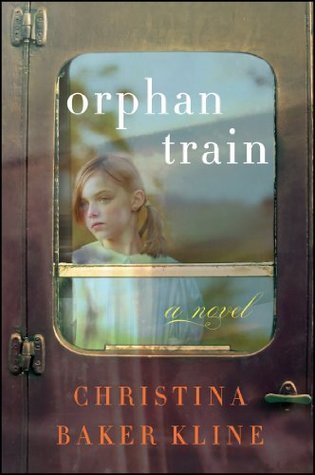 Orphan Train: A Novel by Christina Baker Kline
Orphan Train: A Novel by Christina Baker Kline
It’s a heartwarming story, but don’t let that stop you. It’s 2011, and Molly is a troubled teen in a foster home. Nearby, 90-year-old Vivian lives in a big house with an attic full of memories. For various reasons, Molly comes to help Vivian clean out the attic and in the process the two women rediscover Vivian’s past as one of the Orphan Train riders–a girl at the age of nine sent from New York with other orphans to be parceled out to families in the Midwest.
Some of the orphans had a tough time of it, and Vivian is no exception. Meanwhile, in 2011, Molly is trying to get by and maintain peace with Ralph and Dina, her foster parents. The resolution of the story is maybe a little too tidy for my taste, but that’s probably why the book has been a bestseller.
It’s definitely a good read.
April 26, 2014
The Tom Wolfe Seminar at Washington & Lee University: Elizabeth Strout
 For the past few years, I’ve been attending a wonderful spring program at Washington & Lee University called the Tom Wolfe Seminar. This two-day event is endowed by Wolfe’s 1951 classmates from WLU and each year brings a well-known writer to Lexington, Virginia (just 30 miles from where I live) to deliver a lecture. The first time I attended I heard Geraldine Brooks and Tony Horwitz. Two years ago Colum McCann was the guest and last year’s visitor was Jennifer Egan.
For the past few years, I’ve been attending a wonderful spring program at Washington & Lee University called the Tom Wolfe Seminar. This two-day event is endowed by Wolfe’s 1951 classmates from WLU and each year brings a well-known writer to Lexington, Virginia (just 30 miles from where I live) to deliver a lecture. The first time I attended I heard Geraldine Brooks and Tony Horwitz. Two years ago Colum McCann was the guest and last year’s visitor was Jennifer Egan.
This year the series brought Elizabeth Strout, Pulitzer Prize-winning author of Olive Kitteridge and, more recently, The Burgess Boys. The seminar is a little expensive—although in addition to the lectures it includes an open-bar reception, dinner (with free-flowing wine), and a nice lunch—but because Strout is a former teacher of mine from my MFA program, I decided to go again this year.
The event began with introductions in WLU’s Lee Chapel. The program director introduced Tom Wolfe who then spoke for a few minutes. Wolfe is 83 and I must say that his age shows. But he then gave way to Strout, who spoke eloquently on her subject: “Olive Kitteridge: What purpose does she serve.” I really enjoyed this, and it turned out that the answer is multi-pronged. Olive is a mirror. Olive speaks the truth when sometimes we are unable to. Olive helps discover the truth in others, because you never know what’s going on in their heads. One of the things that I especially loved is Liz’s insistence that Olive is MADE UP. Unlike some authors who say that their characters take on a life of their own, Liz was in control at all times. That’s so honest, and one of the great things about her work.
There was a book signing for the public and then a private reception only for the registered participants in the seminar. This year the reception was held in Lee House, the beautiful residence of the university president, and was hosted by President Kenneth Ruscio and his wife Kimberly. The reception was lovely and was a first opportunity to meet the other seminar participants. That event was followed by a dinner, this year held in the great hall of the Science Center.
Day Two of the seminar began with coffee and donuts (a major food group from Olive Kitteridge) but really kicked off with Marc Conner’s discussion of the book: “The Form of Trauma: Olive Kitteridge and the American Scene.” Conner gave a brilliant lecture two years ago on Colum McCann’s Let the Great World Spin, and this talk was also excellent. Among other things, he looked at ways in which two earlier story cycles, Joyce’s Dubliners and Anderson’s Winesburg, Ohio, might have influenced the writing of Olive Kitteridge. I had to smile at this because it echoed in some ways the talk I’ve given many times about Joyce and Anderson and what modern practitioners of the story cycle owe them.
Conner was followed by Psychology professor Karla Murdock. I had not heard Murdock speak before, but her talk was also excellent. She looked at the personalities of some of the characters, especially Olive and her husband Henry, and also looked at the role that the reader’s own experience must bring to an understanding of the book.
The program concluded with a panel discussion with Strout, Conner, and Murdock, and then the lunch. A very enjoyable weekend.
April 20, 2014
2014 Reading: The Good Soldiers by David Finkel
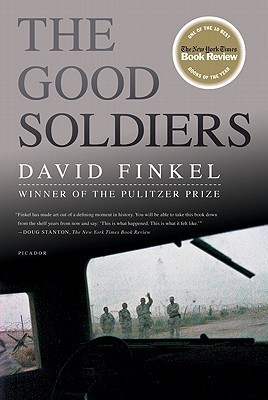 The Good Soldiers by David Finkel
The Good Soldiers by David Finkel
This is a tough book to read because of the subject matter, but it should be required reading for all Americans, especially those who thought the Iraq War was a good idea. Finkel writes about the full deployment–over a year–of a single battalion from Ft. Riley, Kansas, during the “surge” in the Iraq War. Along the way, he details every death in the battalion and many of the serious injuries as well as the deep psychological wounds that the war caused.
It’s pretty grim, but I’m glad to have read it.
April 19, 2014
2014 Reading: Still Writing: The Perils and Pleasures of a Creative Life by Dani Shapiro
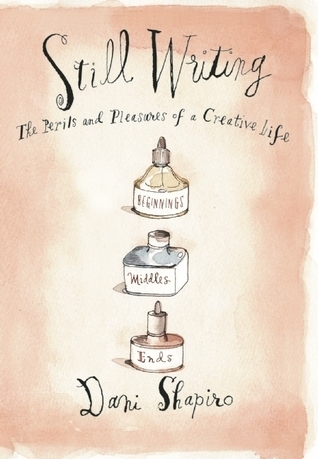 Still Writing: The Perils and Pleasures of a Creative Life
Still Writing: The Perils and Pleasures of a Creative Life

By Dani Shapiro
Atlantic Monthly Press, 2013
I love this book. I’ve just finished reading it and I plan to keep it by my desk and re-read its short chapters as part of my own daily writing routine. I don’t think non-writers, even fans of Dani Shapiro’s work (novels and memoirs), can really appreciate the book. But writers will. Are you a writer? You should read this book.
Although Shapiro’s childhood was very different from mine and her path to writing was also very different, and although she’s been far more successful than I have, I can relate to just about everything she says in this book. More importantly, I am comforted by it and I can learn from it.
The book, which is short, is divided into three sections: Beginnings, Middles, and Ends. That pretty much covers it, right? As writers, we struggle with getting started. We struggle with keeping the momentum going. We struggle with the endings. (We also struggle with what happens after the ending, and that third section deals with that, too.)
While writing about her own life and her own experience, Shapiro shares valuable tips for writers. On my next read through, I’m going to underline my favorites, but I’ll give you a sample:
“Here’s a short list of what not to do when you sit down to write. Don’t answer the phone. Don’t look at e-mail. Don’t go on the Internet for any reason, including checking the spelling of some obscure word, or for what you might think of as research but is really a fancy form of procrastination.” Okay, I knew this already, but I need someone to tell me, to force me to admit that I do this. All the time. And it’s a problem.
“Start small. If you try to think about all of it at once—the world you hope to capture on the page, everything you know, every idea you’ve ever had, each person you’ve met, and the panoply of feelings coursing through you like a river—you’ll be overcome with paralysis.” Yes. Absolutely. She goes on to use the metaphor of a jigsaw puzzle. Build a corner first, then move on from there. “Every book, story, and essay begins with a single word. Then a sentence. Then a paragraph.”
And there’s much more. Some of it is obvious. Some of it is not. But all of it is helpful. It’s helpful just to have had a successful author say it.
I’m not going to lend you my copy of this book. Get your own.
Now, having said how much I love this book, I was shocked—shocked, I tell you!—by typos. When you spend $24 for a book, you ought to get something that’s pretty close to perfect. I took an informal poll of my Facebook friends to find out how bothered they were by typos in a printed book, and most—almost all who responded—were very bothered. (10 or more on a scale of 1 to 10.) A few didn’t care, but they were in the clear minority.
I care. I didn’t stop reading because of the typos, because I was really enjoying the book, but what good is having a big-time publisher if they’re going to let mistakes like this slip by. I actually doubt that these errors were Dani Shapiro’s. She strikes me as too careful for that. But somehow in production these mistakes slipped into the text.
I counted five in a small-format 230 page book. And I can’t be sure I spotted them all, especially because I read the last third of the book rather quickly. On my next reading—I’m serious about reading it again, despite the typos—I may find more. But here’s what I found so far, in case the author or publisher might be interested:
p. 32: “We doesn’t ask why that particular slant of sunlight, snipped of dialogue, old couple walking along the road hand-in-hand seems to evoke an entire world.” [Someone changed the subject and forgot to change the verb?]
P. 116: “You don’t know—you can’t know—whether the bricks you’ve layed on top will be supported by the brinks at the bottom.” [I even checked to see if there’s some technical think about brick-laying that would justify this spelling, but I found none.]
P. 119: “There is tremendous creative freedom to be found in letting go of our opinions of our work, in considering the possibility that we may not be not our own best critic.” [I tried to imagine a meaning in which this crazy double negative might make sense, but . . . no.]
P. 126: “If it were possible to trace the roots of any writing life back to it’s very inception, to the seeds, to the tender shoots deep within the fertile ground, we would inevitably find ourselves in the territory of childhood.” [Cringe.]
P. 155: “But somehow—though the whole thing was embarrassing and didn’t feel exactly good—I had the sense that what I was doing was—as my writer friends and I sometimes say, good for the work.” [Dashes can be tricky, and this mistake is probably the result of trying to avoid two parentheticals in the same sentence, but the fix was incomplete.]
Too picky? Maybe. But if this is what we get from a real publisher, what sets the work apart from the messes we sometimes see in self-published books? Each one of these mistakes made me stop. That’s not what an author wants to have happen.
Typos aside, this is a fine book, and I recommend it highly to my writer friends.
April 18, 2014
National Poetry Month
 Last night, my local writers’ organization (SWAG Writers–the Staunton, Waynesboro, Augusta Group of Writers, a sub-chapter of the Virginia Writers Club), hosted our annual Poetry Month reading. About 15 people were in attendance to hear wonderful work by four poets with very different styles and voices. The reading was in a great venue and a terrific addition to the arts community in Staunton–The Space (The Staunton Performing Arts Center Experience).
Last night, my local writers’ organization (SWAG Writers–the Staunton, Waynesboro, Augusta Group of Writers, a sub-chapter of the Virginia Writers Club), hosted our annual Poetry Month reading. About 15 people were in attendance to hear wonderful work by four poets with very different styles and voices. The reading was in a great venue and a terrific addition to the arts community in Staunton–The Space (The Staunton Performing Arts Center Experience).
The first reader was John Most. John is from Crozet, Virginia but has lived and studied in Europe and New York. He read work from a complicated new project, but he also talked about published work and a long-term project that includes Atelier, available on CD. In honor of Poetry Month, John kicked off with a poem by H.D.
Then Sara Robinson read from both of her collections, including her newest book, Stones for Words. Sara, who describes herself as “rural balladry,” began with a reading of a Billy Collins poem.
Next up is Angela Marie Carter. Angela’s book, Memory Chose a Woman’s Body, will be out very soon from Unbound CONTENT. A confessional poet, Angela’s work is sometimes dark and disturbing, but always bold. Still she managed to end on an upbeat note!
The last reader was Jeff Schwaner. I’m a fan of Jeff’s work, which you can sample on his website, Translations from the English. Wonderful stuff. Love those long titles!
And then we sampled the refreshments.
For more information about SWAG Writers and what we do, leave a comment or send me an email: info@cliffordgarstang.com.
April 16, 2014
Everywhere Stories: Short Fiction from a Small Planet
 My new anthology, Everywhere Stories: Short Fiction from a Small Planet, is getting closer to being a reality. This has been a great process—from the call for submissions late last fall to the screening of the avalanche we received (over 650 of them!)—and now we’re almost done. Almost done with the first phase that is. The next goal will be to get the book into the hands of as many readers as possible. Publication is scheduled for October 2014. If all goes well, we might produce a second volume (I already have stories lined up) in 2016. We’ll see.
My new anthology, Everywhere Stories: Short Fiction from a Small Planet, is getting closer to being a reality. This has been a great process—from the call for submissions late last fall to the screening of the avalanche we received (over 650 of them!)—and now we’re almost done. Almost done with the first phase that is. The next goal will be to get the book into the hands of as many readers as possible. Publication is scheduled for October 2014. If all goes well, we might produce a second volume (I already have stories lined up) in 2016. We’ll see.
Everywhere? Nearly. The book will include fifteen stories set in fifteen different countries on seven continents: Russia, Iran, Costa Rica, Kazakhstan, Italy, Antarctica, Congo, China, Cuba, Canada, Uganda, Israel, Germany, New Zealand, and the United States. (The second volume will have stories from Zambia, Kenya, Guatemala, France, Panama, Samoa, Australia, Bangladesh, Argentina, Poland, Pakistan, Hungary, and more!)
And who are the authors? I’m glad you asked. Everywhere Stories Volume 1 will include work by Holly Painter, Jay Kauffmann, Rochelle Distelheim, William Kelly Woolfitt, David Ebenbach, Peyton Burgess, Tim Weed, Jocelyn Cullity, Jennifer Martin, Joseph Cavano, Midge Raymond, Jeff Fearnside, Alden Jones, Jill Widner, and Teresa Hudson.
Press 53 is the publisher. More information soon! Please follow us on Facebook: Everywhere Stories.
April 14, 2014
“My Writing Process” Blog Tour
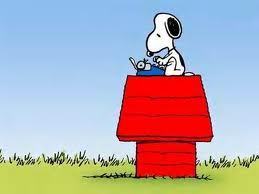 I was invited to participate in this “My Writing Process” Blog Tour by Paulette Livers, a good friend from a couple of visits to the Sewanee Writers’ Conference. The Tour has been making the rounds since at least last October, and it might be fun to trace its genealogy. Each participant is asked to answer four questions and then pass the torch to a few more writers. You can check out Paulette’s post (and see who invited her) on her blog: http://paulettelivers.com/whats-new/.
I was invited to participate in this “My Writing Process” Blog Tour by Paulette Livers, a good friend from a couple of visits to the Sewanee Writers’ Conference. The Tour has been making the rounds since at least last October, and it might be fun to trace its genealogy. Each participant is asked to answer four questions and then pass the torch to a few more writers. You can check out Paulette’s post (and see who invited her) on her blog: http://paulettelivers.com/whats-new/.
1. What are you working on? Right now I am in Editor Mode. I put out a call for submissions a few months ago for stories set all over the world and am now assembling and editing an anthology called Everywhere Stories: Short Fiction from a Small Planet, which will come out from Press 53 this fall. I’m really excited about this project, but I’m looking forward to getting back to my own writing. I have two novels in progress, and soon I’m going to need to commit to one of them. Both are unusual, structurally, and I guess that’s all I’m willing to say about them at this time!
2. How does your work differ from others of its genre? I don’t know that it does differ from other work in the genre. Or I don’t know what the genre is. I write literary fiction that is mostly realistic. In my first book, I tried to distinguish my story collection by making it unified, in the sense that the stories were all set in the same small town, involved overlapping characters, and to some extent explored similar or related themes (alienation, isolation, etc.). In my second book, I took those linkages further to create a novel in stories—a collection of independent stories that, taken together, tell one larger story. With a few high-profile examples in recent years—Elizabeth Strout’s Olive Kitteridge and Jennifer Egan’s A Visit from the Goon Squad—this form (is it already its own genre?) has become a bit more common. Both of these books, the anthology that I’m editing, and the two novels I’m working on all have international components to them, though, thanks to my own background in international law, and so maybe that’s what makes my work different.
3. Why do you write what you do? I write fiction because I honestly believe it opens access to a deeper truth than non-fiction does. When I began writing, I worked on a novel, but the project failed (although it was my MFA thesis). After that, I wrote short stories because I couldn’t bear the thought of investing many more years into a single project but also because I’d been reading a lot of stories and was enthralled by the form. But after my second book was published, I returned to the novel because it really does allow the author to say so much more. And I’ve got a lot to say, believe me.
4. How does your writing process work? I know some writers who puzzle over every sentence, polishing as they go, so that when they are lucky enough to complete a story it is nearly finished, requiring little revision. I know other writers who spew ideas onto the page, letting the subconscious take over. That can be very exciting—and I do write that way sometimes—but it means that the story will likely be completely rewritten in the process of revision, after the author has discovered what it was he was trying to say in the first place. My normal process is somewhere in the middle. I don’t generally know where the work is heading, so I am guided by instinct primarily. But I do pay attention to word choice and sentences as I do the initial drafting. I still have to do a lot of rewriting, but I find this approach gives me a solid foundation on which to build.
Next up:
I’ve asked Steve Weddle, Bunny Goodjohn, and Amy Willoughby-Burle to follow up, and their answers to these questions will be posted next Monday, April 21.
Steve Weddle grew up on the Louisiana/Arkansas line, holds an MFA in creative writing from Louisiana State University, and currently works for a newspaper group. His debut novel, County Hardball, is published by Tyrus Books. He is the editor of Needle: A Magazine of Noir and a co-founder of the crime fiction blog DoSomeDamage.com, where his answers will appear. He lives with his family in Virginia.
B.A. Goodjohn is the author of the novel Sticklebacks and Snow Globes. She has published poetry in various journals including The Texas Review, The Cortland Review, Zone 3, and Connecticut Review, and she won Reed Magazine’s Edwin Markham Poetry Prize in 2011. Bunny teaches English at Randolph College in Virginia and is working on a companion novel entitled The Beginning Things and on Love, Love—All that Wretched Cant, a collection of poetry. She blogs at http://www.bagoodjohn.com.
Amy Willoughby-Burle is the author of Out Across the Nowhere, a collection of short stories. Her fiction has appeared in numerous literary journals such as Potomac Review, Inkwell, Sycamore Review, Reed Magazine, The MacGuffin and many others. She is the editor of Blue Lotus Review, an online journal for literature, art, and music. Amy was raised in the small coastal town of Kure Beach, North Carolina. She graduated with a BA in English (and an unfinished Masters in Creative Writing — “sorry Mom and Dad”) from East Carolina University. She spent several years in her husband’s home state of Missouri before getting homesick for North Carolina. She now lives in the mountains near Asheville with her very gracious husband and four children. She blogs at http://amywilloughbyburle.com/
February 27, 2014
2014 Reading: The God of Small Things by Arundhati Roy
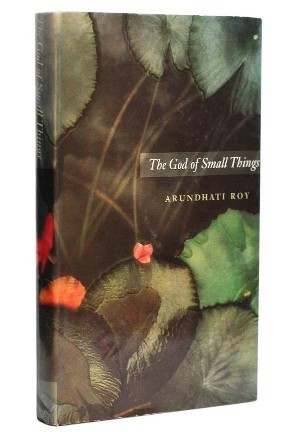 The God of Small Things by Arundhati Roy
The God of Small Things by Arundhati Roy
What a beautifully written book this is. Perhaps it is “overwritten,” as a friend of mine has said, but for me its lushness is part of its charm. It’s the story of a pair of twins, Rahel and Estha (a girl and a boy, “two-egg twins”) and the rest of their family, living through the tragedy of the death of their cousin Sophie Moll, and the complex aftermath. Embedded in this story is a look at India’s caste system, at the political morass, the socio-economic divide, at education and race and the role of women.
I have owned a copy of this book for a long time—I try to read the Booker Prize winners, and this one won in 1997—but I didn’t get around to “reading” it until I came into possession of the Books on Tape version (which, sadly, apparently isn’t available commercially). It is narrated by Donada Peters, a gifted actress, if her reading of this book is a good measure. She’s fantastic. And now, having come to the end of the tapes, I’m ready to dip into the actual text.

February 26, 2014
My old law firm interviews me
 Because I knew when I graduated from law school in 1981 that I wanted an international career (I had served in the Peace Corps just after college and had lived for 2 years in South Korea), I only considered job offers from firms that I thought provided a path toward that goal. I chose the firm that at that time was called Sidley & Austin and now goes by Sidley Austin because it was one of the largest firms in Chicago, it had international clients, and it was just beginning to open overseas offices. I made the right choice.
Because I knew when I graduated from law school in 1981 that I wanted an international career (I had served in the Peace Corps just after college and had lived for 2 years in South Korea), I only considered job offers from firms that I thought provided a path toward that goal. I chose the firm that at that time was called Sidley & Austin and now goes by Sidley Austin because it was one of the largest firms in Chicago, it had international clients, and it was just beginning to open overseas offices. I made the right choice.
After two years of excellent training from some of the best lawyers in the country, I was asked to move to the firm’s Singapore office–back to Asia, where I wanted to be. It was a great experience. I finally left the firm in 1994 because I wanted to do international development work rather than straight private client legal work, but I’ve always considered Sidley “my firm.”
Anyway, the communications people at the firm have begun interviewing alumni and the profile they did is available here: Alum Clifford Garstang: From International Lawyer to Literary Award Winner.
February 25, 2014
On the Eve of AWP
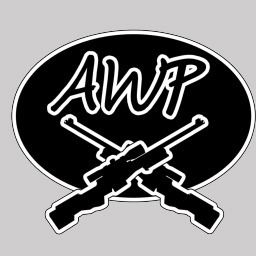 Last year at this time, a large snowstorm that eventually dumped 20 inches of snow was bearing down on the Shenandoah Valley. Because that was sure to disrupt travel, I made the decision to leave a day early for the AWP Conference in Boston; I got out of here just in time.
Last year at this time, a large snowstorm that eventually dumped 20 inches of snow was bearing down on the Shenandoah Valley. Because that was sure to disrupt travel, I made the decision to leave a day early for the AWP Conference in Boston; I got out of here just in time.
This year the conference is in Seattle, and although we are expecting light snow tomorrow, I don’t think it will be a problem–I hope–and so I’m sticking to my plans. I’ll head to Seattle on Wednesday via Washington Dulles and launch into the conference on Wednesday morning.
If you’re wondering, AWP is the Association of Writers and Writing Programs and its annual conference is the largest literary gathering in America. (AWP also stands for Arctic Warfare Police in the video game Counter Strike, apparently, which is where the image above comes from, just for laughs.) This year over 10,000 people have registered in advance, and more are expected to register on site. It will be a madhouse. Guaranteed.
This will be my 8th year in a row. I first went to the AWP Conference when it was in Atlanta in 2007. It was big then and has gotten bigger and bigger since then. After my first experience, I went to the conferences in New York (2008), Chicago (2009), Denver (2010), DC (2011), Chicago (2012), and Boston (2013). Some years I’ve been on panels, some years not. Mostly I hang out in the bookfair, to be honest. The panels are mixed bag, and often overcrowded. The bookfair is crowded, too, but these days I can head to the Press 53/Prime Number table to hangout. (This year we’re at CC 35-36, so stop by to see us!) We’re also sponsoring an offsite reading at The Kells on Thursday night from 6 to 8pm. Should be fun!




